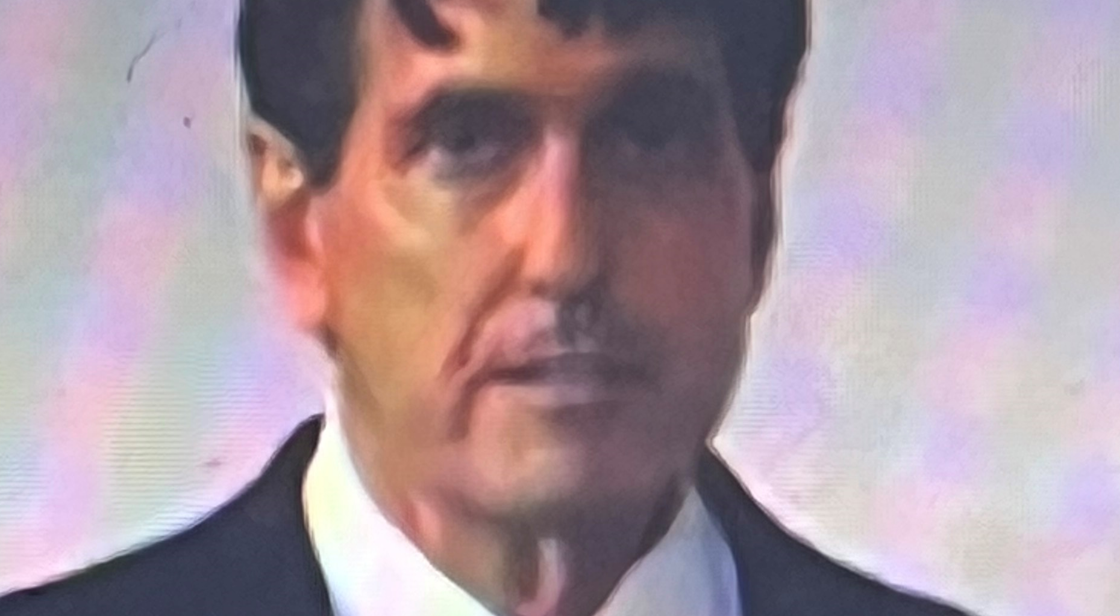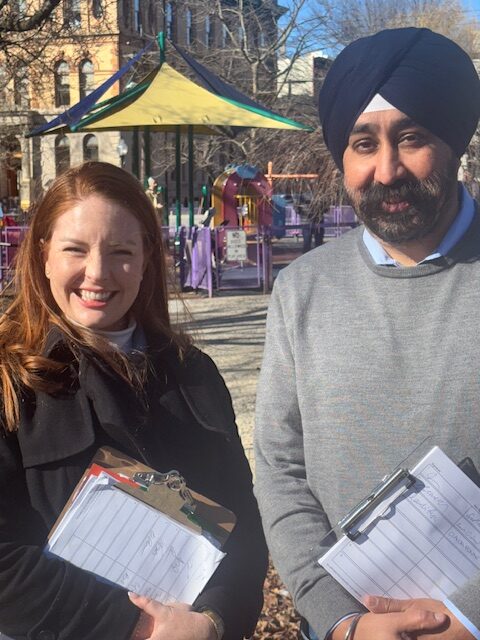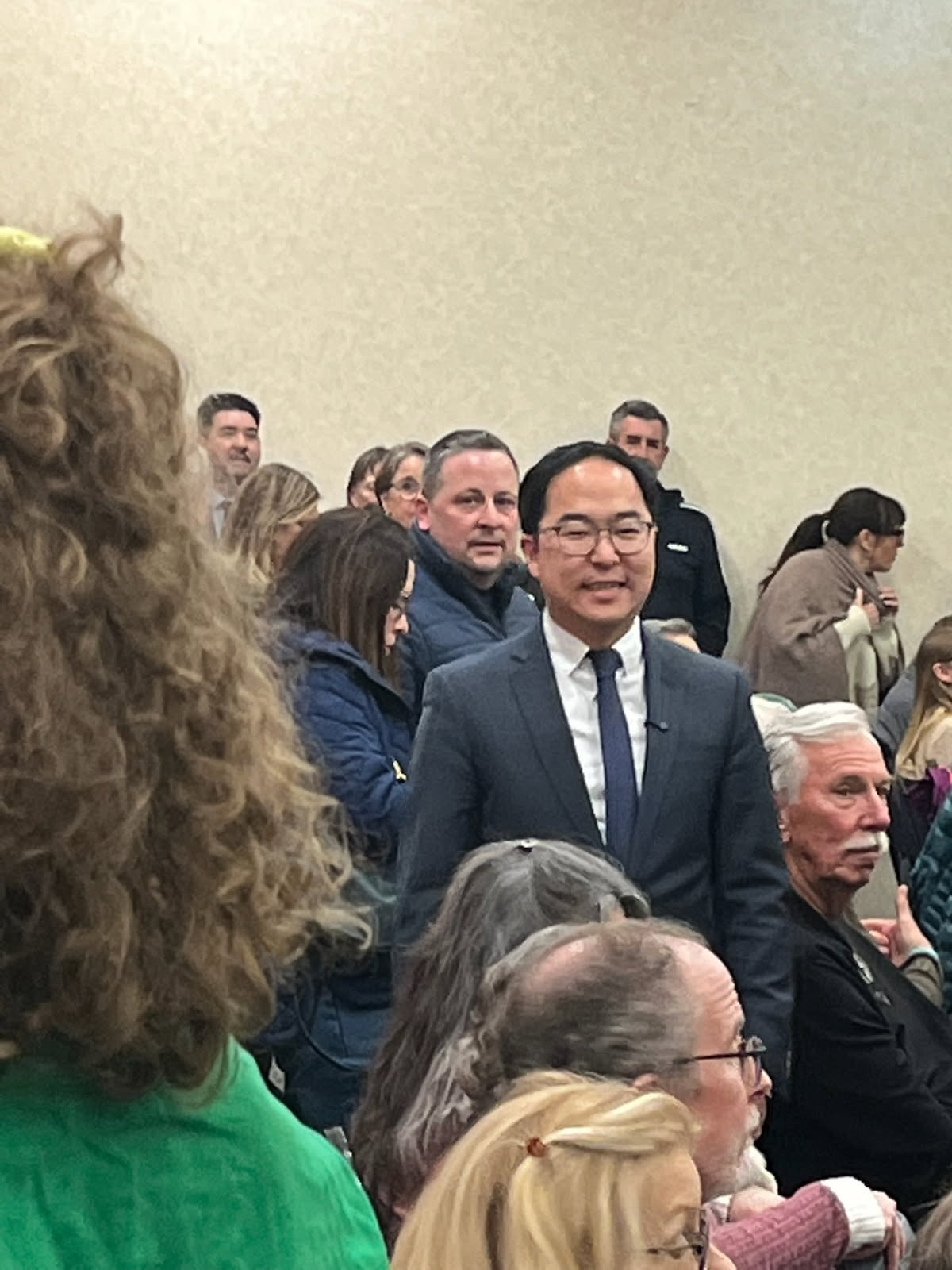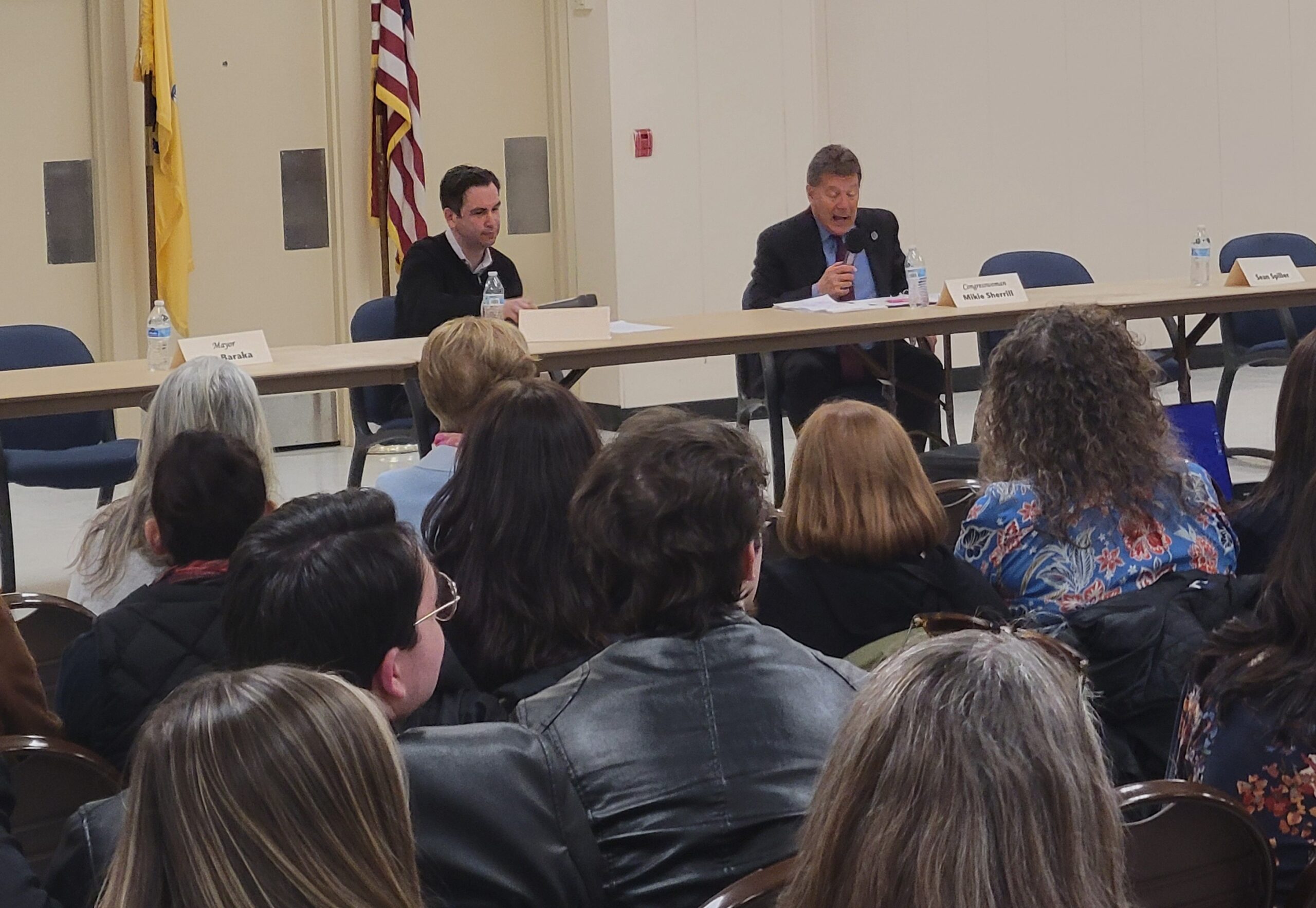
If you scan news sites Monday morning, you saw a few headlines similar to this one on Fox News. “GOP New Jersey Senate candidate Curtis Bashaw nearly passes out during debate.”
That really wasn’t how Bashaw wanted his first debate with Andy Kim to go.
The Sunday night debate sponsored by the NJ Globe, On New Jersey and Rider University had just begun when the candidates were asked about affordability.
Bashaw was answering the question when he suddenly stopped and appeared to freeze – similar to some of the episodes we’ve seen involving U.S. Sen. Mitch McConnell.
After a few awkward seconds, Kim walked over to him and asked, “Are you OK? Bashaw said yes.
Soon thereafter, a campaign aide came on stage to check him out and moderator Laura Jones called for a break.
After about seven minutes, the debate resumed. Bashaw attributed the problem to not eating much during the day. The debate began at 8 p.m.
The New Jersey Senate race already has been a bit under the radar. Democrats hold a more than 900,000 voter registration advantage and Republicans haven’t won a U.S. Senate seat in more than 50 years.
Clearly, Bashaw needed a good showing.
What he certainly didn’t need was what I saw on one of the New York TV stations last night. The only reference to the debate was Bashaw’s apparent medical issue.
As for the debate itself, Bashaw pushed hard on immigration, which is the Republican issue of the campaign.
Bashaw said he recently visited the border and saw 62 people just walk into the country.
When Kim blamed Donald Trump for stopping a bipartisan, compromise bill on immigration, Bashaw said Kim has been in Congress for six years and the problem continues and continues.
Bashaw stressed that he is not your typical right wing Republican, or as he puts it in his TV ad, you can’t put him “in a box.”
He said he supports strong gun background checks and making the Affordable Care Act better as opposed to doing away with it – a long-time Republican goal.
He also spoke early in the debate about being gay and pro-choice.
Kim was skeptical.
“I just fundamentally have a problem with you using the term ‘pro-choice’ to describe yourself,” Kim said. He added that Bashaw has endorsed Trump, who was instrumental in overturning Roe v. Wade in the first place.
Bashaw reiterated his abortion rights position and said having a pro-choice Republican in the Senate would be beneficial. And he said he was pro-choice in the primary.
That was when he beat Christine Serrano Glassner, who was endorsed by Trump.
All this was on the mind of the America First Republicans, a New Jersey MAGA group.
In a statement after the debate, the group condemned Bashaw’s “disturbing” performance.
Michael D. Byrne, the group’s co-chairman, made an interesting observation about CD-7, the most competitive House district in the state.
“Tom Kean is locked in a tight race where he desperately needs pro-life, pro-Trump America First Republicans to vote the entire ticket,” he said. “But Bashaw did everything he could to sabotage Kean’s chances by ensuring pro-life conservatives vote for Trump… and then stop voting.”
One other point must be made. It, too, is a “disturbing” one.
The candidates were asked about relations with Cuba and whether that should lead to the return to the U.S. of Joanne Chesimard, who was convicted of killing a New Jersey State Trooper in 1973. Chesimad escaped from prison and is living in Cuba.
In answering the Cuba question, neither candidate spoke about working to return Chesimard to U.S. custody.
i
(Visited 175 times, 175 visits today)
The Impact of the Bashaw Debate Freeze on the Uphill Battle
The recent decision to freeze the Bashaw debate has sent shockwaves through the political landscape in New Jersey. The debate, which was set to take place next week, was seen as a crucial opportunity for candidates to make their case to voters and gain momentum in the upcoming election. However, with the sudden cancellation of the event, many are left wondering what impact this will have on the uphill battle ahead.
One of the biggest concerns is that without the debate, candidates will have fewer opportunities to differentiate themselves from their opponents and make their case to voters. Debates are often seen as a key moment in the campaign where candidates can directly address their opponents and highlight their own strengths and policy positions. Without this opportunity, candidates may struggle to break through the noise and connect with voters in a meaningful way.
Additionally, the freeze on the Bashaw debate could have a significant impact on fundraising efforts for candidates. Debates are often used as a platform to showcase a candidate’s viability and attract donors. Without this opportunity, candidates may find it harder to raise the necessary funds to compete effectively in the upcoming election.
Furthermore, the cancellation of the debate could also have implications for voter turnout. Debates are often seen as a way to engage voters and educate them on the issues at stake in the election. Without this opportunity, voters may be less informed and less motivated to participate in the democratic process.
Overall, the impact of the Bashaw debate freeze on the uphill battle ahead is significant. Candidates will need to find new ways to connect with voters, raise funds, and differentiate themselves from their opponents in order to succeed in the upcoming election. The political landscape in New Jersey is constantly evolving, and candidates will need to adapt quickly in order to navigate these challenges and come out on top.



